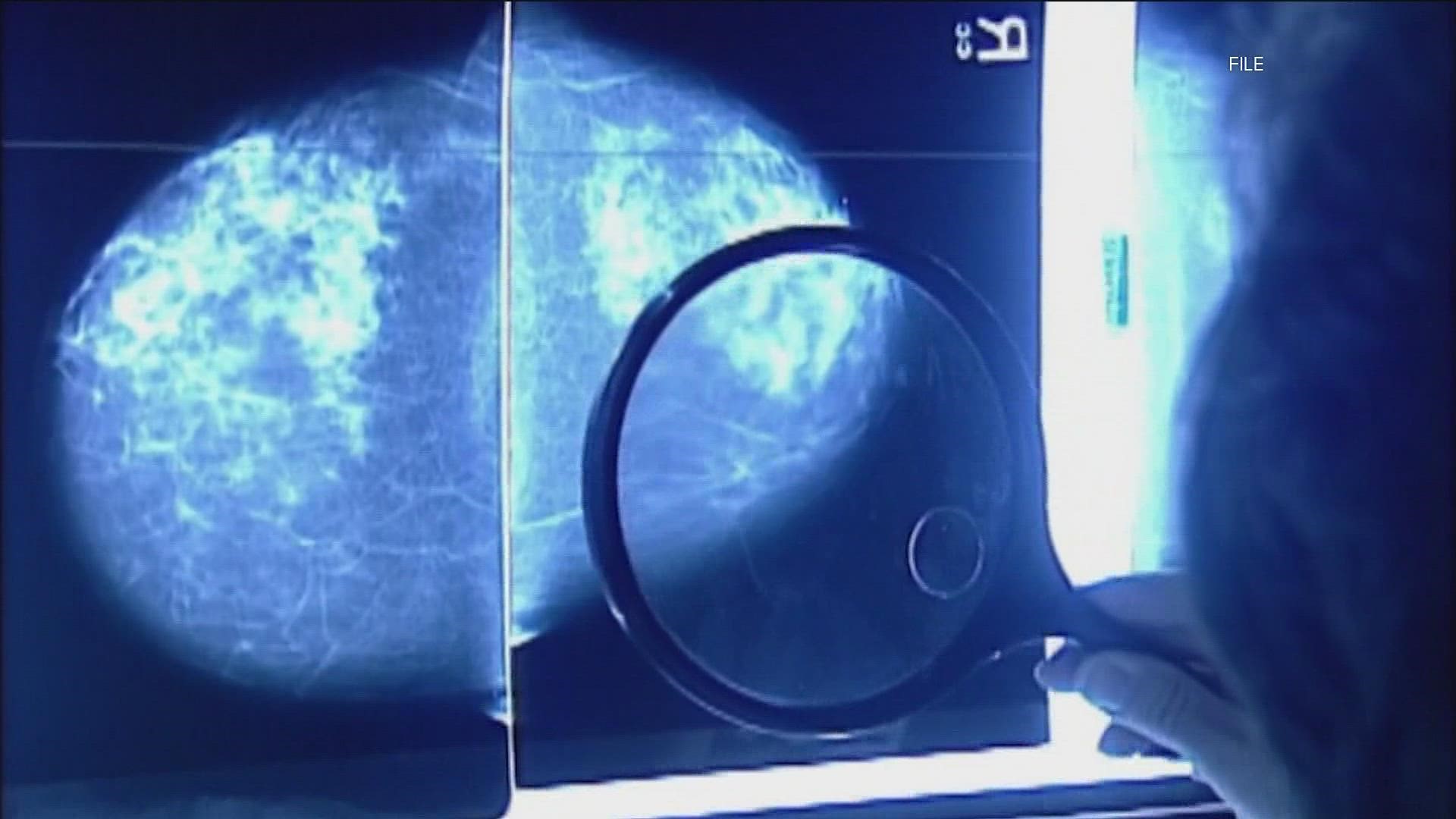COVINGTON, Ga. — It's time to 'grab your girls and get screened.' That's the message the American Cancer Society is sharing this October.
The campaign comes as reports show screening dropped during the pandemic with 2 million women missing critical mammogram appointments.
But it's not just women 45 and older who need to be aware. At only 23 years old, Denice Barnes learned she, too, had breast cancer.
"It was really scary," Barnes, who is now 24 and a mother of two, told 11Alive. "I know when I first went, it was a shock seeing that I was the youngest person there."
It was during a routine gynecological exam that a nurse found a lump, Barnes said. She'd had no prior symptoms prior to her diagnosis.
She then had a breast MRI and mammogram at the Women’s Diagnostic Center at Piedmont Newton Hospital. Given her age, her diagnosis was surprising, Dr. Shanker Polsani said, adding that he's noticing an increase in the number of cases in younger women.
"Usually the age is the most identified risk factor for breast cancer," Polsani, an oncologist with Piedmont Newton, explained. "Increasingly, we have noted that for whatever reason we're seeing younger and younger patients coming in with new diagnoses."
While the majority of breast cancer cases are in women over 50, one in 10 women diagnosed are under the age of 45, according to the CDC.
Referred to as 'early onset breast cancer,' such cases are often hereditary, usually found at a later stage and can be more aggressive. Polsani said patients should bring any breast complains directly to a doctor to be checked out.
"Because increasingly we are recognizing age is going out of our algorithm for trying to understand if it's a possible breast cancer or not," he explained.
Dr. Arif Kamal with the American Cancer Society said the increase was originally thought to be related to increased screening, ie. if you screen more you'll find more cases.
"But independent of that what we're starting to see is really gaps in our collective knowledge in environmental exposure and other things," Kamal said.
As a result, he said there is research underway to see what's happening with various environmental exposures that may be leading to earlier diagnoses.
However, Kamal said family history remains especially informative when it comes to figuring out an individual's risk, "whether you're 23 or 43."
"For families where there is a high incidence of breast, ovarian, stomach, colorectal and uterine cancer, we start to see there may be some genetic changes that may lead to higher than average risk in a person who may be in their 20's and 30's," Kamal said.
Kamal said patients should talk through that family history with a doctor to see if there's a need for earlier screenings or self-exams.
As Barnes prepares for a mastectomy in November, she now hopes her story will also further awareness among young women.
"My mom had cancer when she was 23," she added. "I did not know that until actually I was diagnosed, and we did sit down and talk about that."
According to the CDC, if you are under the age of 45, you may have a higher risk for breast cancer if:
- You have close relatives who were diagnosed with breast cancer before the age of 45 or ovarian cancer at any age, especially if more than one relative was diagnosed or if a male relative had breast cancer.
- You have changes in certain breast cancer genes (BRCA1 and BRCA2), or have close relatives with these changes, but have not been tested yourself.
- You have Ashkenazi Jewish heritage.
- You received radiation therapy to the breast or chest during childhood or early adulthood.
- You have had breast cancer or certain other breast health problems, such as lobular carcinoma in situ (LCIS), ductal carcinoma in situ (DCIS), atypical ductal hyperplasia, or atypical lobular hyperplasia.
- You have been told that you have dense breasts on a mammogram

